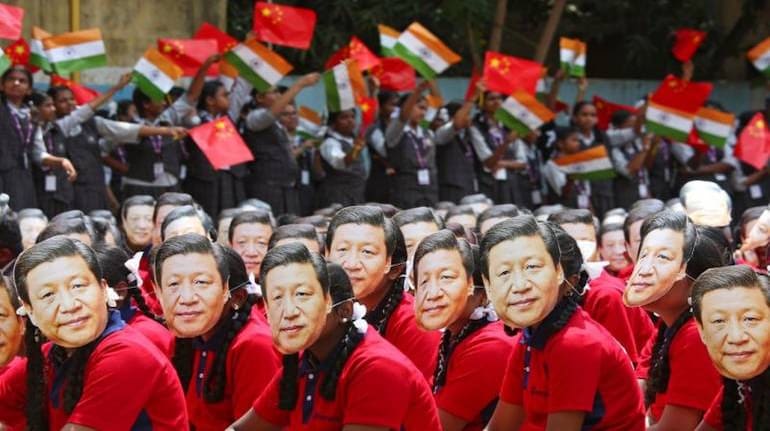



On April 18, New Delhi took a significant decision when it amended its extant FDI policy to make prior governmental approval mandatory for foreign investments from countries that share land border with India to curb ‘opportunistic takeovers’ of domestic firms at a time when global coronavirus pandemic is upending the rules of the economic game worldwide.
This amendment to the FDI rule states, “A non-resident entity can invest in India, subject to the FDI policy except in those sectors/activities which are prohibited. However, an entity of a country, which shares a land border with India or where the beneficial owner of investment into India is situated in or is a citizen of any such country, can invest only under the government route.” Along with this, another important shift entailed blocking the indirect acquisition of investments by entities based in China with the change in ownership of the investment also requiring clearance from the Indian government.
Beijing’s reaction, predictably, has been strong with the Chinese Embassy in India stating that “the additional barriers set by Indian side for investors from specific countries violate WTO's principle of non-discrimination, and go against the general trend of liberalisation and facilitation of trade and investment” and hoping that “India would revise relevant discriminatory practices, treat investments from different countries equally, and foster an open, fair and equitable business environment.”
The immediate cause for bringing this amendment may have to do with the backlash that the government has been facing since the Peoples Bank of China (PBoC) raised its stake in India's largest non-banking mortgage provider HDFC from 0.8 percent to 1.01 percent. However, there are larger issues behind this decision which are likely to transform the trajectory of India-China ties, especially after the negative externalities generated by the COVID-19 pandemic.
Faced with China’s economic drive at a time of acute economic crisis, concerns have been rising across the world about Chinese companies using this opportunity to buy up distressed assets at cheap rates. The ongoing economic crisis is presenting opportunities for takeover in several sectors and India will need to safeguard its own technological assets at a time when China's cumulative investment in India has been rising, exceeding $8 billion till December 2019.
In particular, Chinese investors have been investing in Indian startup sector aggressively. India emerged as an attractive destination for the Chinese firms ever since the US-China trade war began to restructure the global supply chains.
India’s response is part of a worldwide trend where Chinese predatory trade practices and weaponisation of trade has generated an intense backlash. This process has been accelerated by the current pandemic. Europe too has been raising alarm at the Chinese practices. Chinese investments in strategic industries have led European nations to more aggressively defend their economic interests.
The COVID-19 pandemic and the resulting economic crisis can open up new possibilities for Chinese inroads in Europe. However, there is a new resolve in Europe to fend off the threat of a Chinese takeover. In fact, Margrethe Vestager, the European Union’s (EU) competition commissioner, recently suggested that European countries should consider taking stakes in companies to fend off this threat.
Last month, the European Commission had called upon its member states to ensure protection of strategic assets from a likely Chinese takeover. Australia is also taking precautionary measures aimed at preventing sales of distressed corporate assets during the coronavirus crisis.
So India is not alone in taking measures to ensure its strategic sectors are protected at a time of great socio-economic turmoil. Like most mature democracies, India too is coming to terms with the challenges of economic interdependence with a country such as China. The Trump administration in the United States has been talking of an ‘economic decoupling’ from China for some time now. However, it took the pandemic for the rest of the world to take it seriously.
For India the problem lies that trade with China has often been viewed as a positive in a relationship which is increasingly devoid of any positive sentiment. After the Doklam stand-off in 2017, the Wuhan ‘reset’ with China was premised largely on India and China working towards a more robust economic relationship. Yet, China’s reluctance to adequately address Indian concerns and the challenges posed by sectors such as trade and health also becoming national security challenges meant that New Delhi had had to finally bite the bullet.
Beijing should recognise that while New Delhi will certainly lose in the process, it is a price it seems willing to pay in order to not only strengthen its own manufacturing and technological base, but also to demonstrate its resolve by standing up to China’s shenanigans.
Harsh V Pant is director, Studies at Observer Research Foundation, New Delhi and professor of international relations, King’s College London. Views are personal.
Discover the latest Business News, Sensex, and Nifty updates. Obtain Personal Finance insights, tax queries, and expert opinions on Moneycontrol or download the Moneycontrol App to stay updated!
Find the best of Al News in one place, specially curated for you every weekend.
Stay on top of the latest tech trends and biggest startup news.